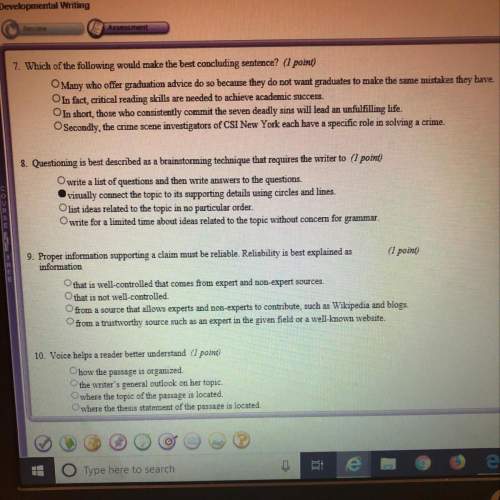
Every four years, millions of people head to the polls on Election Day to vote for a new president. It is their right and duty as U. S. citizens to do so. In the months before the election, they watch the candidates argue about important issues. They read articles about the candidates' promises. They see ads that draw attention to the candidates' strengths and weaknesses. Armed with this knowledge and their own beliefs, citizens choose the candidate whom they believe will lead our country in the right direction. Or do they?
2In the United States, the people do not directly pick the president. Rather, our country gives this important power to the Electoral College. The Electoral College is a body of electors selected by the people in each state to officially choose the next president. How does the Electoral College work? On Election Day, voters take part in the popular vote. They press a button or pull a lever to vote for a presidential candidate. What they actually do, however, is pick the electors who will become members of the Electoral College. These electors pledge to vote for the chosen candidate in another election held in mid-December.
3The number of members each state has in the Electoral College depends on its population. A state with a large population has more votes than a state with a small population. For example, California has 55 votes while Alaska has 3. In most states, the candidate who wins the popular vote wins all of that state’s electoral votes. A candidate must receive a majority of the electoral votes to become the next president. How many electoral votes is enough to win? In recent elections, candidates have had to earn at least 270 of the 538 electoral votes to win.
4In theory, this system should work, and it has worked—most of the time. A few times, however, the system has failed. In these cases, the candidate with fewer popular votes gained enough electoral votes to win the election. This occurred during the 2000 presidential election when more people voted for Al Gore, but George W. Bush earned more electoral votes and became the president. What causes such a breakdown in the system to happen? Let's return to the example of California and Alaska. A single vote in California has the power to override thousands of votes in other states. Imagine that only one person in California casts a vote for Candidate A. That candidate wins the popular vote in California 1–0. He or she gets all of California's 55 electoral votes. Across the country, thousands of voters in Maine, New Hampshire, Vermont, Massachusetts, Connecticut, Rhode Island, New Jersey, and Delaware cast their votes for Candidate B. Not one voter casts a vote for Candidate A. These states have a combined 52 electoral votes, which is not enough to beat California's 55. How can the leaders of our country believe that this system is fair?
5A long time ago, Americans were scattered far and wide about the country. It made sense to have representatives who voted for them. In this day and age, however, polling places are practically in the next room for most people. With the use of computers, it is possible to tally votes quickly and accurately. The need for the "middle man" is gone. U. S. citizens are perfectly capable of choosing the person they want for president without interference. It is time to graduate from the Electoral College and let the people decide. You want your vote to matter, don't you?
The author of the passage includes facts about the 2000 presidential election
A) to explain how the Electoral College works.
B) to show why it is important for people to vote.
C) to illustrate the unfairness of the Electoral College.
D) to tell how many Electoral College votes each state has.

Answers: 3
Another question on English


English, 21.06.2019 16:00
Which resource might provide a student who is just starting a research project with a list of credible sources of information to consult? o a. a biography of an early computer scientist o b. an article on new developments in computing o c. a book about programming languages o d. an online encyclopedia article or wiki
Answers: 1

English, 22.06.2019 03:30
Excerpt from jane eyre charlotte bronte 2 i was glad of it: i never liked long walks, especially on chilly afternoons: dreadful to me was the coming home in the raw twilight, with nipped fingers and toes, and a heart saddened by the chidings of bessie, the nurse, and humbled by the consciousness of my physical inferiority to eliza, john, and georgiana reed.
Answers: 1

English, 22.06.2019 05:30
What reasons does the speaker provide to support his viewpoint or claim in what to the slave is the fourth of july i read to speech and but i just don't fully understand the question i just want to make sure i get it right so to explain that the question is asking me to do. and you!
Answers: 1
You know the right answer?
Every four years, millions of people head to the polls on Election Day to vote for a new president....
Questions

Arts, 14.01.2020 18:31




History, 14.01.2020 18:31



History, 14.01.2020 18:31

Computers and Technology, 14.01.2020 18:31

Mathematics, 14.01.2020 18:31



Mathematics, 14.01.2020 18:31

Mathematics, 14.01.2020 18:31



Social Studies, 14.01.2020 18:31

Physics, 14.01.2020 18:31





